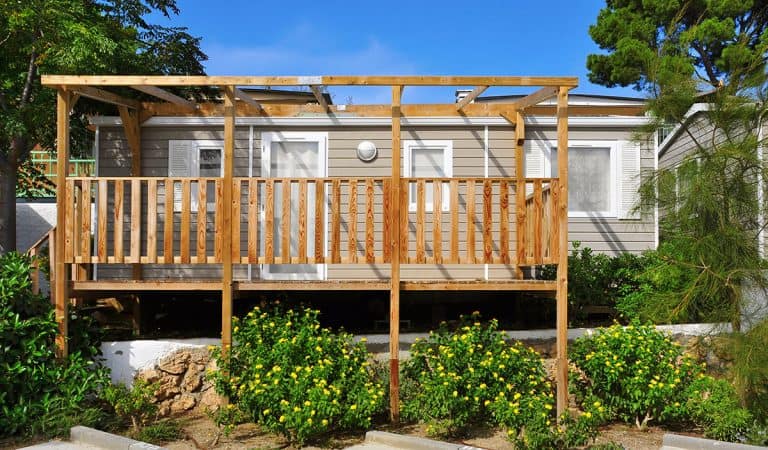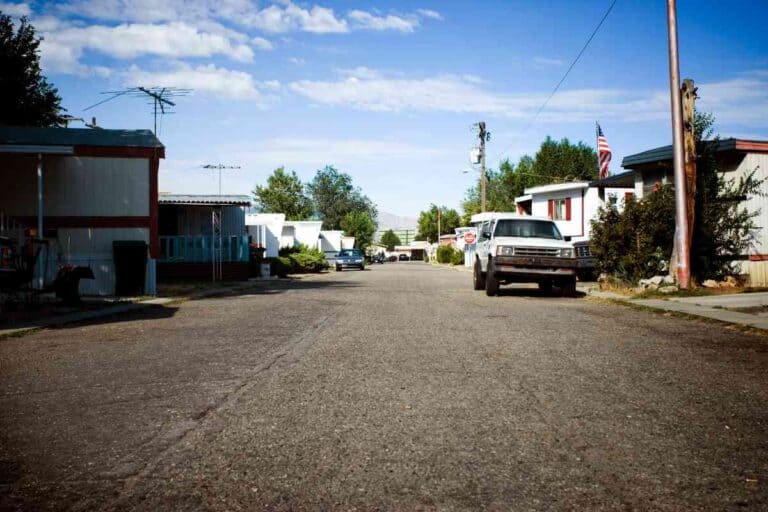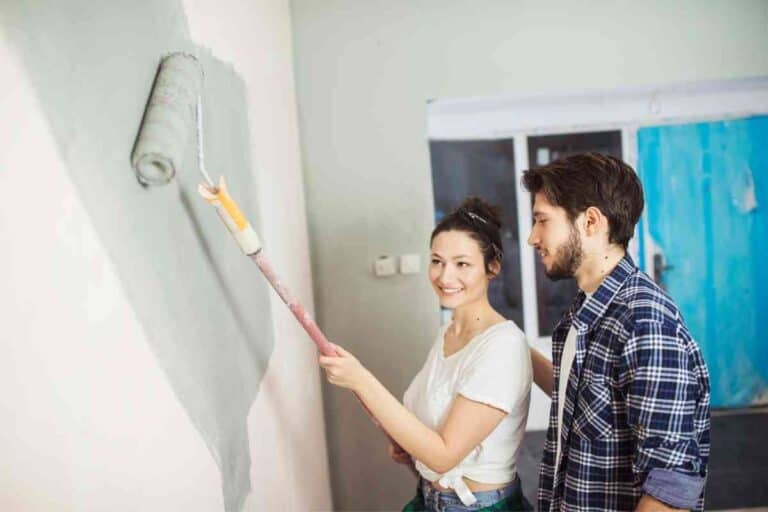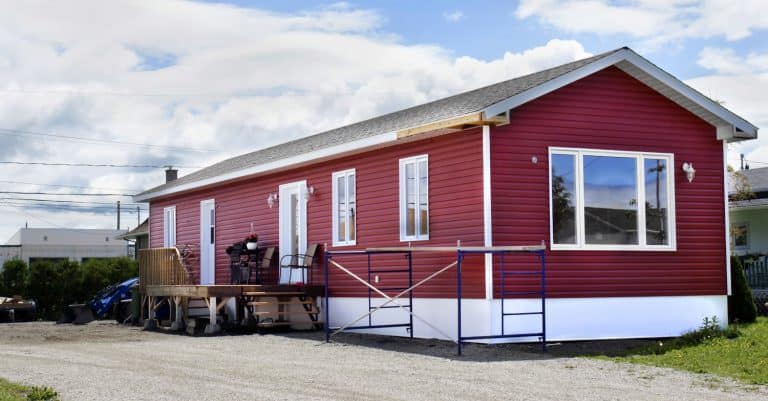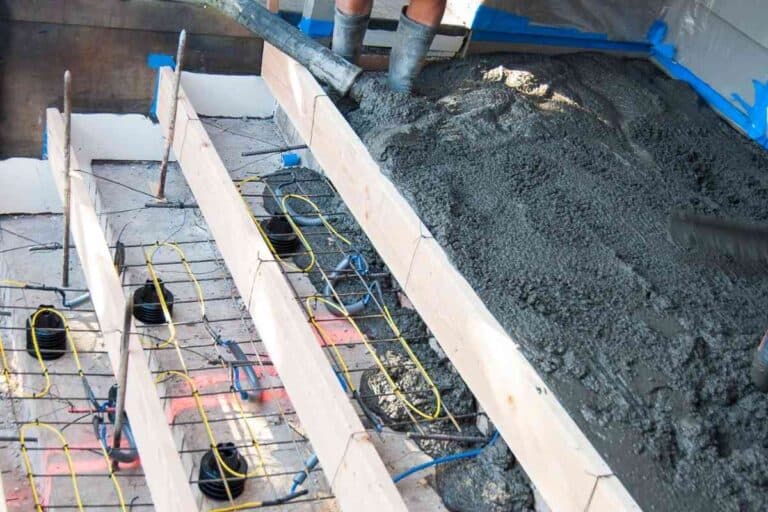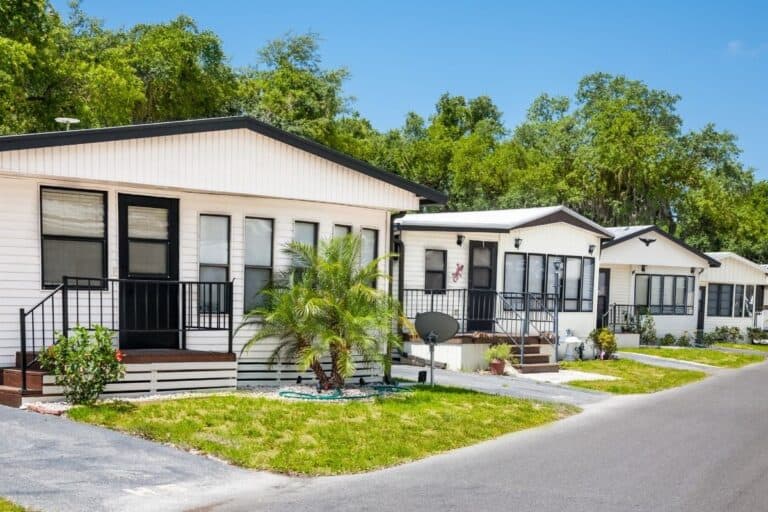Is a Mobile Home a Safe Home?
If you’re thinking about buying a mobile home, you might – reasonably – be worried about the safety aspects. Adverse weather conditions or an unpleasant neighborhood can make any home feel unsafe. It’s important to consider these things before making any decisions, as mobile homes (despite their name) aren’t easy to move and can be hard to resell.
Mobile homes can be safe if they are built with quality materials and situated in a safe area. They are less secure than a brick-and-mortar home but not as dangerous as sensationalist newspaper stories lead many people to believe.
It depends to some extent on where you live. If the area you are planning to stay in suffers from earthquakes, lightning storms, hurricanes, or other challenging weather patterns, your home’s durability and ability to provide shelter is certainly something to consider. You might also be worried about other safety aspects, like security and personal safety.
How Well Do Mobile Homes Stand Up To Weather?
How safe your mobile home is will depend to a large extent on when it was built and what materials were used, as well as what the safety standards at the time of building were. It’s also relevant to ask what kind of weather it is likely to be subjected to and how well it is designed to stand up to that particular force.
Some of the flimsier mobile homes, made cheaply with poor materials, will struggle to manage wild storms, while good-quality, well-built ones should be able to withstand them.
A mobile home doesn’t have to be unsafe in wild weather, but it’s usually a good idea to err on the side of caution; think about worst-case scenarios, and have first-aid supplies and emergency plans in place no matter where you live – even in a brick-and-mortar home.
Is A Mobile Home Safe In A Lightning Storm?
Mobile homes don’t have an increased likelihood of getting hit by lightning or damaged from a lightning strike. Even all-metal container homes and RVs have a very low risk of damage or injury caused by lightning.
A mobile home’s metal body will function as a Faraday cage, which leads electrical current to flow straight into the ground. However, if your mobile home isn’t grounded properly, lightning can jump from your home onto whatever ground wires may be around and potentially harm someone in the vicinity. Therefore, it is important to have a direct ground connection from the steel frame to the ground.
If you live in a mobile home during a lightning storm, here are two things that will keep you safe during a lightning storm:
- If you are outside when it starts to lightning, move indoors right away. You are safer inside a mobile home.
- Avoid touching metal or using water or electronics during a thunderstorm.
You can read more about lightning and keeping your home safe here: Do Container Homes Attract Lightning?
Is A Mobile Home Safe In An Earthquake?
How well a mobile home will stand up to an earthquake is more challenging to answer, as it depends a lot on the age of the home and the materials used to manufacture it – as well as the severity of the earthquake.
Older homes are often not anchored well to their piers and could easily become dislodged during an earthquake, even if ties have been added. This is clearly dangerous and could result in major damage or the piers coming up through the mobile home floor.
Even modern homes may not withstand an earthquake; they are vulnerable, just like brick-and-mortar homes. It is best to seek shelter at a proper earthquake-safe facility if you can.
Earthquake piers can be installed as a means of safeguarding your home, but even so, you may find windows break, objects fly around, and the facilities such as gas and water suffer damage. Be very careful and avoid staying in your mobile home during an earthquake if you can.
If you don’t have time to leave, take safety precautions by staying away from windows and sheltering yourself from any falling objects with a sturdy table or something similar. Remember that mobile homes are also vulnerable to falling trees and flooding, so take this into account when assessing potential dangers.
How Safe Is A Mobile Home During A Hurricane?
Ever since the storm of Hurricane Katrina, there has been a lot of controversy about how safe mobile homes are during a hurricane. Some people think that they’re not at all safe and should be condemned to an early death, while others believe that if you do your homework on where to buy them and how to install them correctly, then you can have peace of mind when it comes time for the big storms.
The truth is it varies greatly depending on their construction and weight. The heavier and more durable the mobile home, the less likely high winds will damage it. An average metal-framed mobile home, weighs about 1,000 pounds when empty (4 times lighter than a typical brick home), could sustain significant wind damage if no tie-downs were securing it from being picked up off the ground.
The build quality will also make a big difference to how safe your mobile home is during a hurricane, of course, and the standards may vary depending on where you live. In areas known for having hurricane-force winds, the safety standards require mobile homes to be able to withstand winds of up to 100 miles an hour or even 110 miles an hour, which is on par with site-built homes.
However, most mobile homes are only built to withstand at least 70 miles an hour winds, but this is still often sufficient for most tropical storms and wild weather. However, if a hurricane is approaching, you should always take safety precautions; the storm could be worse than predicted, or other problems, such as flooding or falling trees, could arise. You may lose power, or an accident could occur.
Protect yourself and your family by either relocating or at least ensuring you have first aid kits, emergency food supplies, access to a phone for emergency services, etc.
Is It Safe To Live In A Mobile Home Park?
Mobile home parks often get a bad name in sensationalist headlines and negative news stories. However, that isn’t necessarily fair. There are certainly some mobile home parks that would be considered unsafe, poorly managed, and unpleasant, but that doesn’t apply to all mobile home parks.
Mobile home parks are commonly associated with crime and poverty because they are often solutions to people who can’t afford standard homes, who may be struggling to make a good living or cope financially.
However, this stereotype is far from fair. Mobile home parks represent many other benefits than just cheap living, and many underprivileged people are completely law-abiding, very friendly, and make excellent neighbors.
Elderly people often relocate to mobile home parks because they offer many benefits, such as single-story living, a handy and friendly community, flexibility, and a very manageable space with low-costs.
In terms of park safety, it really depends on the park. A well-managed and maintained mobile home park is a perfectly safe space for anyone, including families with children. A park that has become run down and is not being looked after may attract less savory residents and crime issues.
If you choose your park carefully, a mobile home park is nothing like the horror stories you may read in a newspaper. With great community spirit and lots of communal spaces offering opportunities for events like shared barbecues, distributed chores, etc., they are wonderful places for anyone to live.
Read also: Why You Shouldn’t Be Embarrassed To Live In A Mobile Home

